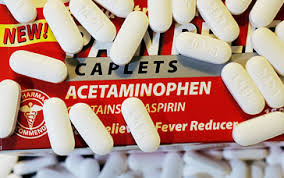
For those in the medical field, it is not surprising that the Tylenol, potentially a very dangerous drug. Part of what makes it so dangerous is that lay people do not know. And because many believe it to be sure, is very often little consideration given to taking the medication exactly as directed.
Do the recommended doses of Tylenol cause any liver damage?
Some early reports did describe the occurrence of chronic liver disease that was associated with the long-term use of Tylenol in recommended doses.
These studies were published in the 1970’s, however, and I suspect that many of these patients may have had unrecognized chronic hepatitis C infection.
Anyway, today, the consensus is that the usual doses of Tylenol cause significant liver damage only rarely, or not at all in people with normal livers.
Likewise, a person with liver disease does not appear to be at an increased risk of developing additional liver injury from taking Tylenol.
This is so-regardless of the cause of the liver disease and provided the patient does not drink alcohol regularly. Thus, Tylenol is quite safe to use in the recommended doses in patients with acute (brief duration) or chronic (long duration) hepatitis.
For example, Tylenol is routinely prescribed to treat the flu-like symptoms that can be caused by interferon treatment for patients with chronic hepatitis. Keep in mind, however, that all drugs, including Tylenol, should be used with caution, if at all, in patients with severe liver disease, such as advanced cirrhosis (scarring of the liver) or liver failure.
Even though Tylenol most likely does not cause serious liver damage in recommended doses, it can cause elevations of liver enzymes in the blood suggesting injury to the liver.
In a study of 145 healthy subjects who were randomized to receive placebo or 4 grams of Tylenol daily for two weeks, subjects in the placebo group experienced no elevations of ALT, a liver enzyme, but 33%-44% of the subjects in the Tylenol group had ALT elevations greater than three times the upper limits of normal. The highest ALT elevation was greater than 500 which is approximately 10 times the upper limit of normal.
All enzyme elevations returned to normal after stopping Tylenol. Thus, recommended doses of Tylenol given to healthy subjects for two weeks can cause mild to moderate reversible liver injury.
Tylenol, like all other medications should be used cautiously under a doctor’s supervision with monitoring of liver enzyme levels.
Dr. Douglas Dietrich, liver specialist at Mount
Sinai School of Medicine, said: “People always aspirin and ibuprofen consider more dangerous because they cause bleeding and ulcers but acetaminophen can damage the reality far more insidious and liver in people who are least expecting it. ”
Acetaminophen – the active ingredient in Tylenol – has long been known that to be a very dangerous drug when used in quantities above the
recommended dose s adds it if people are. contain more than one on medicine against, paracetamol, such as colds, and there are dozens, they could unknowingly too.
Dr. Dietrich said “.. So how is the question too is four grams a day is the maximum anyone should take ”
But many people much more than that. Now the latest research shows paracetamol overdose is now the most common cause of acute liver failure in the United States.
It causes at least 42 percent of all cases seen at liver centers. About half of these cases are due to accidental poisoning suicide attempts, however, the researchers said. More than a third of those who accidentally overdosed on at least two acetaminophen preparations simultaneously
“Half of these people were simply unintentional colds and they were taking medication for pain, “says Dr taken. Dietrich.
Overall, about 30 percent of those who die in the failure of acetaminophen liver acute. even though you use any type of liver failure at particular risk.
“So if you are set for them, it does not take much Tylenol or the acetaminophen to get you into liver failure, or could kill you or a liver transplant, “said Dr. Dietrich states.
So when thinking about using Tylenol, we need to be smart.
“Two Tylenol at one time would be the most that I have made. I have never recommended dose as stated on the bottle passed,” says Sarah Wheeler, a 28 year old man who has thoroughly with drugs.
And that’s the bottom line is not a medicine.
Overall, 662 patients were treated for liver failure were studied. The average dose was given 24 grams -. The equivalent of 48 pills strength unintentional overdoses are those who tend to be older seen with several drugs with Tylenol with other medications for pain and drugs and alcohol, all the amenities of liver failure, which makes the liver more sensitive to Tylenol.